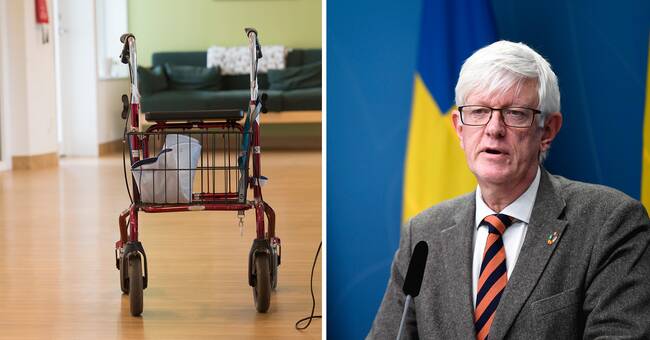The isolation of the elderly during the corona pandemic has had negative consequences that risked worsening.
On Thursday, therefore, the news came that the special recommendations concerning those who are 70 years and older will be removed.
A new report from the Swedish Public Health Agency on the effects of the measures shows, among other things, that the elderly have felt frustrated and that guides have received more calls from people who think they have nothing to live for anymore.
- The physical and psychological consequences are significant for those who have remained isolated.
The already vulnerable people have felt even worse than before and anxiety has increased among those who have a psychiatric diagnosis, Johan Carlson said during this morning's press conference.
Increases the risk of anxiety and suicide
When asked to stay in touch through various digital solutions, the digital exclusion among the elderly, especially "certain groups of foreign-born", has also become clear.
Due to a more sedentary life, physical health is also at risk of deteriorating.
In the long run, isolation would increase the risk of depression, anxiety, sleep problems, substance abuse and suicide, according to the report.
The report also states that the negative consequences "worsen during the autumn and winter, partly because it becomes more difficult with outdoor activities in the dark and cold, and partly because the darkness affects mental health".
Pent-up need for care
The survey showed that many in the group continued to be physically active and stayed outdoors, but they lacked the social context.
Women have felt more alone and had more problems with stress and difficulty sleeping than men.
Those who also live alone have had less opportunity to get help and stayed outdoors to a lesser extent.
The elderly have avoided seeking care despite the need.
- There may thus be a pent-up need for care, says Johan Carlson.
As the measures have had negative consequences, they should only be used for limited periods, the conclusions state.

